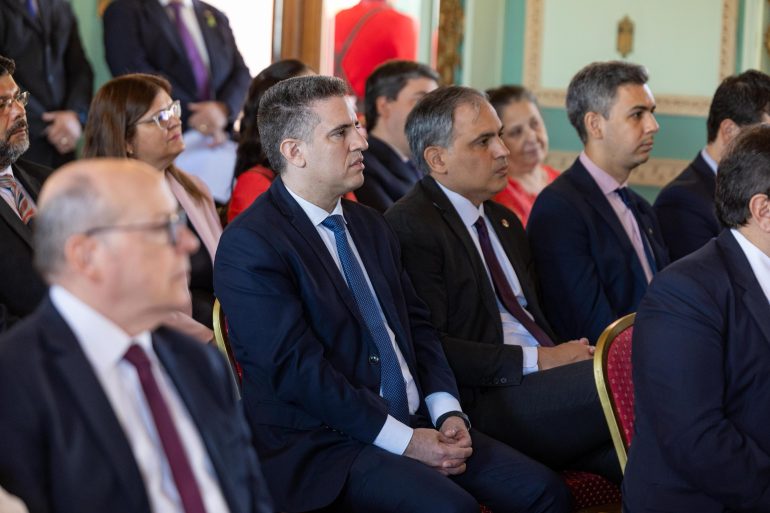The Paraguayan government has signed an agreement with satellite internet provider Starlink to bring connectivity to approximately 500 rural schools across the country, officials announced this week. The Ministry of Information and Communication Technologies (MITIC) and state-owned telecommunications company Copaco finalised the deal. This partnership aims to reduce the digital divide in remote areas where traditional providers have failed to establish infrastructure.
Minister Gustavo Villate confirmed the agreement during a Cabinet meeting. He stated that the initiative will also extend to hospitals and other public services in isolated communities, particularly in the Chaco region.
“We have achieved an agreement through which Copaco has signed with Starlink to reach those sites where we previously could not provide connectivity,” Villate said. “This will allow not only better control of the Hambre Cero programme, but also the health system, to connect hospitals and other health centres in remote locations.”
Rapid implementation planned
Oscar Stark, President of Copaco, told local media that the project aims to connect the first 100 schools within two weeks. Copaco currently provides connectivity to over 500 schools nationwide and plans to match that figure through the Starlink partnership.
The service costs 50 US dollars per month and targets areas where connectivity is low or non-existent. Traditional telecommunications operators, Tigo, Claro, and Personal, have historically avoided investing in these regions. The reason is due to challenging terrain and sparse populations.
Stark said the school connectivity programme forms part of Starlink’s corporate social responsibility efforts. The company plans to expand services beyond education. “Subsequently the idea is to cover hospitals and police stations,” he stated.
Copaco’s financial challenges
The agreement comes as Copaco faces significant financial difficulties. The state-owned company carries a debt of US$120 Million, worsened by exchange rate fluctuations.
Three international firms have expressed interest in potential partnerships with Copaco: a fund from the United Arab Emirates, Telcel Inc. from the United States, and Rivada. A bill currently pending in Congress would provide the legal framework for such arrangements.
Stark acknowledged that whilst “cash flow has improved, losses have decreased compared to last year and revenues are being maintained”, the company’s debt remains substantial.
Starlink’s market entry and context

Starlink, owned by businessman and entrepreneur Elon Musk, has expanded rapidly across Latin America in recent months. The service offers speeds exceeding 100 Mbps even on basic plans, presenting competition to traditional telecommunications operators who have focused primarily on urban markets.
The timing of Starlink’s entry coincides with development of the Bioceanic Corridor, a major infrastructure project connecting the Atlantic and Pacific oceans through Brazil, Paraguay, Argentina, and Chile. The corridor has increased international investment interest in the Chaco region.
Minister Villate emphasised that connectivity represents an essential tool for improving access to education. Additionally, as a mean to strengthen oversight of government programmes, including the Hambre Cero food security initiative. The ministry has also implemented a complaints portal within the Integrated School Feeding System to increase transparency and accountability.


